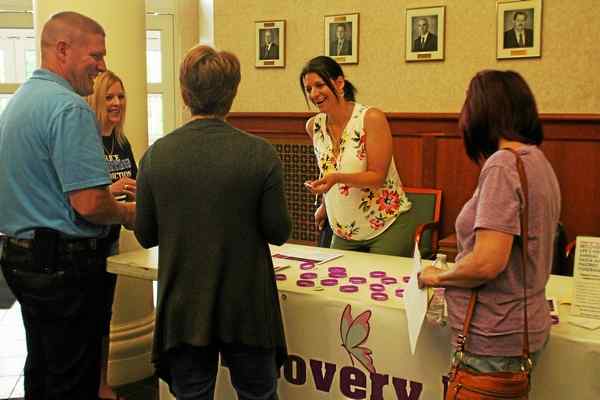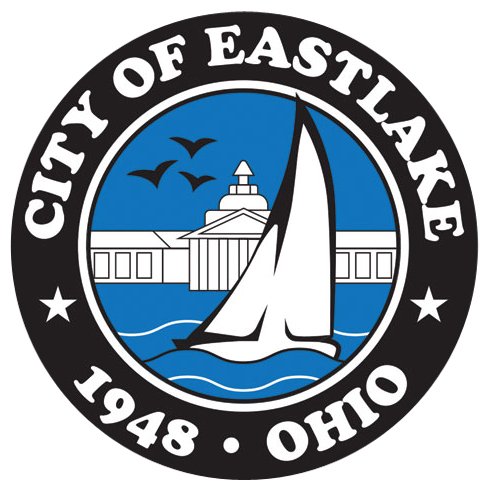Eastlake kicks off Safe Passage Initiative

Eastlake Police Department’s June 12 kick-off of its Safe Passage Initiative proved to a success as several of the city’s residents came out seeking help for their addictions.
Due to publicity of the event ahead of time, the Police Department was able to place one addict in a program prior to the event and received three phone calls requesting assistance the day of and had three more walk in requesting assistance during the event.
While the initiative has been making headway in Cuyahoga County and areas throughout Ohio, Eastlake is the first one in Lake County to offer it.
“Our mission is to assist those struggling with addiction by allowing them to come to us for help without fear of being criminally charged,” said Katie Granchi, victim advocate for the department. “Our department works with various organizations to help find these individuals a treatment facility that will meet his/her needs.”
Granchi said “drug addiction is a terrible disease that is unfortunately affecting many people.” She also notes that in Eastlake the overdose rates have nearly tripled between 2015, when the department saw 24 overdoses, compared to 2016 when it saw 67 overdoses. These numbers continue to rise.
Eastlake Police Chief Larry Reik said the initiative allows people who are suffering from addiction to seek help.
“If they get up in the morning or anytime throughout the day or their life they feel that they are ready to search for a cure, we can provide some framework and our victims advocates and our department are here to help direct them to some treatment facilities.” Reik said.
The chief believes that this has worked out well in Berea and Olmsted Township and a few other places on the west side.
“I doubt if anyone in the audience doesn’t know specifically somebody who personally or whose family has not been affected with the opioid crisis. We had nine overdose deaths last year which is more than the previous three years combined,” Reik said. “It’s important for the police station when people walk in to be able to get them guidance. No matter what insurance they may have there is some kind of facility for us to get them to so they can seek some help and hope they start down the recovery path.”
The kick-off event had various law enforcement agencies and recovery services on hand to help the department get addicts who came seeking help started on the recovery process.
Agencies at the event included: Eastlake Victims Assistance, Friends of Recovery, Captain Kevin Kelly of the Euclid Police Department, Sgt. Patrick Greenhill of the Berea Police Department, Recovery for Life, The Addicts’ Parents United (TAP) and Windsor Laurel.
Kelly said he was there to support Eastlake in opening its program.
The Euclid Police Department started its initiative several months ago, Kelly said.
“When you have multiple departments working on the program it is always great,” Kelly said. “When local departments are available, it’s better for the people who need help”
Greenhill said Berea and Olmsted Townships were the first two departments in Northeast Ohio to offer safe passages and the two departments decided to go into it together as a collaborative effort in 2016 they were looking at community-based programming.
“There are a lot of different organizations and groups trying to come together to comeback this issue, and what we did with Safe Passage is knock down some traditional walls that existed between law enforcement and social workers,” Greenhill said. “Everyone was in their own silos doing the best they could to try to combat this issue and what we did was link all the silos together so people were communicating in ways we have never done before.”
In doing that they were able to seek out Caresource, one of the largest managed-care providers in Ohio which has been with Safe Passage since the beginning, Greenhill said.
Greenhill also named several recovery centers and stated that all the organizations started seeing what the departments were trying to do as a law enforcement agency.
“We are starting with baby steps here,” Reik said. “We are willing to answer any questions if someone comes to the station asking for help and we have referrals for them. Hopefully, it will send people down the right road.”
Added Granchi: “Addiction has no bias; it shows no mercy regardless of ones ethnicity, race or social status. Addiction has the potential to affect us all, and it’s time we fight back in full force.”
